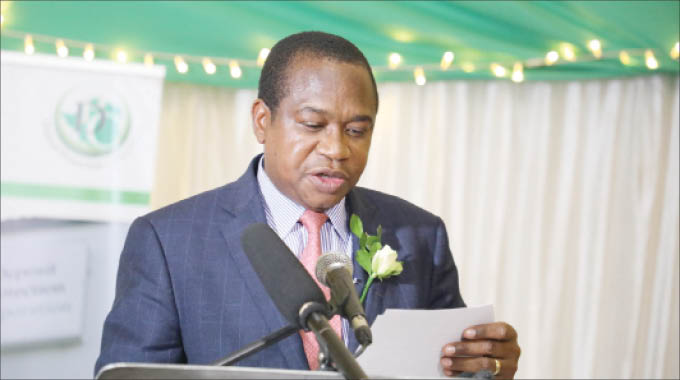Chiefs compile database of undocumented citizens in Matabeleland

Nqobile Tshili, Chronicle Reporter
CHIEFS in Matabeleland region have started compiling a database of community members who have no national identity documents as part of efforts to address challenges arising from Gukurahundi.
The chiefs were mandated to resolve the Gukurahundi problem which created several social challenges.
Traditional leaders are also expected to undergo conflict resolution training this month before starting Gukurahundi public hearings.
Due to Gukurahundi some families do not have identity documents depriving individuals of their rights as citizens.
However, as part of measures to address the challenges, President Mnangagwa last year instructed the Registrar General’s Office to forgo red tape and bottlenecks to ensure that victims of Gukurahundi and other citizens can get national documents with ease.
National Council of Chiefs Matabeleland South provincial chairperson, Chief Masendu who is from Bulilima district said traditional leaders are in the process of compiling statistics of those without requisite national documents.
“The issue of national identity documents is problematic in Matabeleland region.
We have engaged members of the public and we have been informing those without IDs and birth certificates to come forward and register their names.
We have told them to register their names with their village heads so that we know the exact number of people who need the national documents.
Thereafter, we will invite the Civil Registry Department so that it can come to the ground and register them,” said Chief Masendu.
He said in the coming months they will be calling the registry department to attend to communities and assist people obtain national identity documents.
Chief Masendu said the issue of identity documents could be one of the factors that contribute to the region having less registered voters compared to other regions.
He said the registry offices were also far from communities hence the public are not motivated to obtain the identity documents.
Chief Mabhikwa from Lupane district in Matabeleland North said he has also started compiling the database of people with no national identity documents.
“I remember in our previous engagement, when it was resolved that as chiefs we are taking the lead in resolving the Gukurahundi issue, it was agreed that we gather data of our people without national identity documents.
I remember we had an engagement with the officials from the civil registry who said when we mobilise certain numbers, the office would come down to conduct a mobile national identity registration exercise,” said Chief Mabhikwa.
He said while they had started to compile the database last year, they were disrupted by the Covid-19 pandemic-induced lockdown which made it difficult to gather members of the public for the exercise.
Chief Mabhikwa commended the improved working relations between Government departments and traditional leaders saying it will ensure national projects are easily implemented.
Chief Sikhobokhobo said more awareness campaigns are needed before some victims of Gukurahundi can come out in the open to discuss their challenges.
“In this day and age everyone needs to have national documents.
But what I have observed is that some people are still afraid.
We have some elderly people without documents, but some of them prefer to hide because they are still afraid to open up because of their experiences.
If we are not to be involved some of the people may never open up,” he said.
Chief Sikhobokhobo said chiefs need to be provided with resources so that they conduct awareness campaigns in their communities.
Zimbabwe Human Rights Commission chairperson Dr Elasto Mugwadi said it was essential that chiefs were involved in addressing identity challenges in the community.
He said this enables traditional leaders to account for every member of their community so that they do not miss out on Government programmes.
“They have a big role to play because there is no better witness or evidence than that coming from the chief.
Because for those people who are not registered because their parents died during Gukurahundi, the Registrar General’s Office normally demands proof of death in the form of death certificates and those are not available.
The only evidence that is acceptable to the registry is the evidence from the chief,” he said.
“So, they play an important role and even in the case of famine, there is always a need to know who is eligible for receiving food aid.
If your people are not documented, they may end up being prejudiced because when they are given food aid, it is a requirement that they identify themselves.”
Home Affairs and Cultural Heritage Deputy Minister Ruth Maboyi said her ministry will soon start complementing the efforts being made by traditional leaders by conducting a mobile national document registration exercise.
“We had started rolling out the mobile national documents’ registration exercise last year in Tsholotsho where several people obtained national documents without being asked anything.
We will be scaling a similar exercise when financial resources are available. We are still awaiting disbursement of funds and once the funds are released, we will be visible on the ground,” said Deputy Minister Maboyi.
She said the registry department was facing a challenge in procuring consumables that are used in the production of IDs which require foreign currency.











Comments